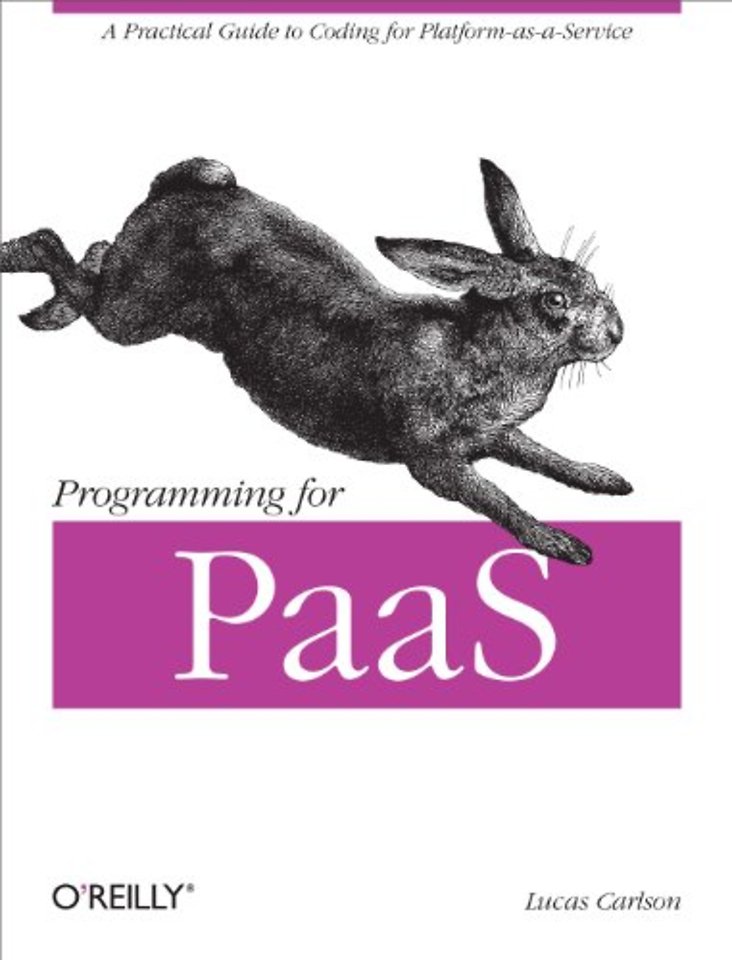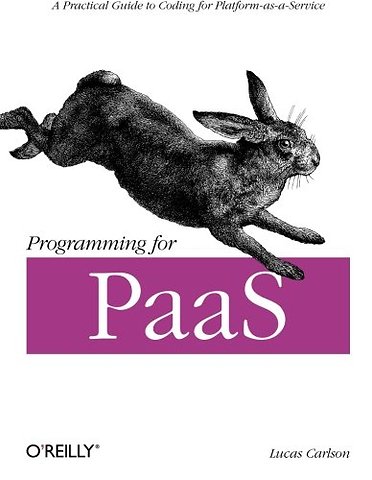Programming for PaaS
Paperback Engels 2013 9781449334901Samenvatting
Platform-as-a-Service (PaaS) is gaining serious traction among web and mobile developers, but as new PaaS providers emerge and existing vendors upgrade their features, it’s hard to keep track of what PaaS has to offer. This thorough introduction takes you through the PaaS model from a developer’s point of view, and breaks down the types of services that Google App Engine, Windows Azure, Heroku, Cloud Foundry, and others deliver.
Whether you’re an entrepreneur or part of a large enterprise development team, this book shows you how PaaS can help you focus on innovative applications, rather than spend your time worrying about technical operations.Track the cloud’s evolution from IaaS and DevOps to PaaSLearn how PaaS combines the simplicity of shared web hosting with the control of dedicated hostingExplore the benefits of both portable and non-portable PaaS optionsApply best practices for moving legacy apps to PaaS—and understand the challenges involvedWrite new applications for PaaS from scratch with RESTful meta-servicesUse PaaS to build mobile apps with backend services that scaleExamine the core services that each major provider currently offersLearn the situations in which PaaS might not be advantageous
Specificaties
Lezersrecensies
Inhoudsopgave
Programming Is Hard;
Writing Code That Works on PaaS;
Audience;
The Structure of This Book;
Conventions Used in This Book;
Using Code Examples;
Safari® Books Online;
How to Contact Us;
Acknowledgments;
Chapter 1: The Cloud for Developers;
1.1 The Developer’s Plight;
1.2 What the Cloud Has Done for Innovation;
1.3 The Cloud: A Brief History for Programmers;
1.4 The Core of the Cloud;
1.5 Managed Platforms versus Productized Platforms;
1.6 The Cloud’s Promise (or Hype);
1.7 The Cloud in Five Years;
1.8 The Promise Fulfilled;
Chapter 2: What Is PaaS?;
2.1 Conjuring a Website;
2.2 Early Options for Developers;
2.3 PaaS: The Best of Both Worlds;
2.4 PaaS: A Vital Tool for Modern Apps;
2.5 Conjuring Confidence;
Chapter 3: Types of PaaS;
3.1 Non-Portable: Following a Template;
3.2 Portable: No Heavy Lifting Required;
3.3 Summary: Where Do You Want to Live?;
3.4 Dealing with Legacy and Greenfield Apps;
3.5 Tapping Into Services;
3.6 Moving Toward Open Standards;
Chapter 4: Moving Legacy Apps to PaaS;
4.1 Initial Considerations;
4.2 Overview;
4.3 Asset Hosting;
4.4 Session Management;
4.5 Caching;
4.6 Asynchronous Processing;
4.7 SQL;
4.8 NoSQL;
4.9 Miscellaneous Gotchas;
Chapter 5: Writing New Apps for PaaS;
5.1 Breaking Down the Monolith;
5.2 Leveraging APIs for Mobile Development;
5.3 The Emergence of JSON and REST;
5.4 Consuming RESTful Metaservices;
5.5 The Unique Contribution of PaaS;
5.6 The Effect of Moore’s Law;
Chapter 6: Mobile Apps on PaaS;
6.1 A Brief History of Mobile App Development;
6.2 The Apps of the Future;
6.3 Data Structures;
6.4 Consuming Metaservices in Mobile Clients;
6.5 How PaaS Makes Mobile Backend Development Easier;
6.6 Serving a Large Audience;
Chapter 7: A Look at Core Services;
7.1 Non-PaaS Core Services;
7.2 Evaluating PaaS for Services;
7.3 Saving Time with Managed Databases and PaaS;
7.4 Caches and PaaS: Look for Redundancy;
7.5 Solving the Challenges of Email;
7.6 The Importance of Monitoring;
7.7 Load Testing;
7.8 Planning an Upgrade Path;
Chapter 8: Why Not PaaS?;
8.1 Public Cloud versus Private Cloud;
8.2 How to Choose: Small- and Medium-Sized Businesses;
8.3 How to Choose: Enterprise Businesses;
8.4 The Limitations of PaaS;
8.5 Encountering Resistance;
8.6 Putting the Limitations in Perspective;
Chapter 9: The Future of PaaS;
9.1 The Influence of OpenStack;
9.2 Keeping Your Development Options Open;
9.3 Outages: Your Biggest Problem;
9.4 Regaining Control Through Open Source;
9.5 Final Thoughts;
Chapter 10: Resources;
10.1 PaaS Providers;
10.2 IaaS Providers;
10.3 Managed Services;
10.4 Migrating Legacy Apps to PaaS;
10.5 Greenfield PaaS App Development;
Colophon;
Rubrieken
- advisering
- algemeen management
- coaching en trainen
- communicatie en media
- economie
- financieel management
- inkoop en logistiek
- internet en social media
- it-management / ict
- juridisch
- leiderschap
- marketing
- mens en maatschappij
- non-profit
- ondernemen
- organisatiekunde
- personal finance
- personeelsmanagement
- persoonlijke effectiviteit
- projectmanagement
- psychologie
- reclame en verkoop
- strategisch management
- verandermanagement
- werk en loopbaan

